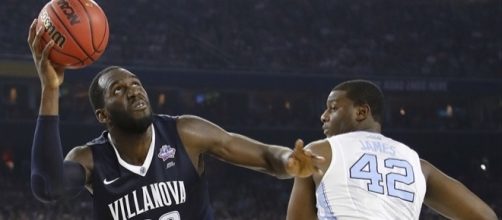College Basketball games often go all the way down to the wire, and are often two or three point games with only a minute remaining. In these dire situations, coaching and strategy become key factors that can influence a team's winning potential. If a team employs effective strategy, it can prevent crazy comebacks that should have never happened in the first place.
The National Championship Game.
Villanova might have finished the college basketball season with a National Championship, but it was Jenkins, and not Jay Wright, who was responsible for the win.
With approximately 15 seconds left on the clock, UNC was down 74-71. Once UNC crossed midcourt, the clock had wound down to less than 10 seconds. Villanova's players denied Marcus Paige the ball for a few seconds before he finally caught it with about 8 seconds remaining. Paige then shot an off-balance three that went in with less than five seconds to play.
Now the game is tied. We all know that Kris Jenkins would go on to hit a shot at the buzzer beater to give Villanova the victory. But what if that hadn't happened? Would we be talking about Jay Wright's decision to evade fouling even when the Wildcats were up three? We will never know.
Rules for Fouling.
In this situation, Villanova should have fouled.
As a general rule, teams up three should foul when there are less than ten seconds left on the game clock. This allows the team that's winning to retain their lead by at least one point and maybe more. And then your opponent is forced to foul after the next inbound. However, teams need to be careful and avoid fouling a three point shooter in this situation.
The other scenario with regard to fouling occurs at the opposite spectrum. If a team is down one point, when should a foul be given? As a general principle, a college basketball team should foul if the time on the game clock is below 45 seconds and the opposing team has the ball. This gives you at least a shot to tie up the game with a three no matter what happens on the foul shots.
If the clock is above 45 seconds, the team down one can play defense and hope to get a stop.
To recap, here are the rules again.
- Foul with less than ten seconds left when your team is up three
- Foul when there are less than 45 seconds left on the game clock when the opposing team is up one
- Play defense when the opposing team is winning by one when there are more than 45 seconds on the clock.

